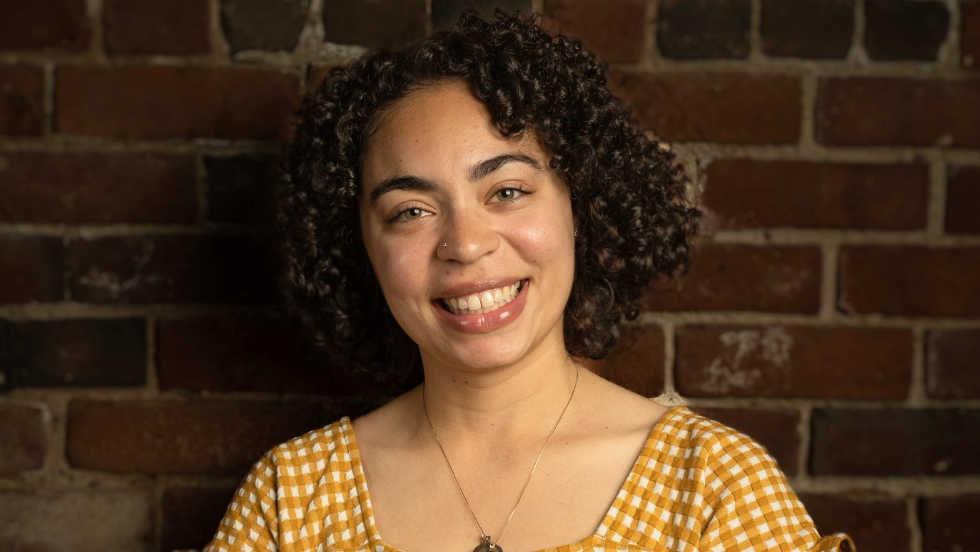Name: Alexandra Medeiros
Hometown: Barrington, RI
Program: Urban Education Policy
Education: Williams College (Bachelor’s Degree, Music and Psychology)
Current Position: Transformation Analyst at Boston Public Schools
What initially drew you to the UEP program at Brown?
I was a Teach for America corps member in 2020 and worked with several people who had gone through the UEP program. Based on my interests and passions while teaching, they encouraged me to apply. I attended information sessions and met with Dr. Kenneth Wong, and I realized the program could be a great fit for me. While I was passionate about teaching, I felt like I could have a greater impact beyond the classroom. Pursuing a Master’s in Urban Education Policy seemed like the right next step to expand my influence in education.
How did your undergraduate studies or prior work experience influence your decision to pursue a master’s in UEP?
During my senior year, I took a psychology seminar called Success and Failure. One section of the course focused on how education serves as both a predictor of success and a potential barrier. That experience initially led me to join Teach for America, and it ultimately shaped my path into education policy.
What was your favorite part about living in Providence and being at Brown?
The food—Providence has an amazing food scene! Additionally, my parents both attended Brown and met here, so I grew up in the area. Being close to family was a big plus. Beyond that, the community at Brown is incredibly welcoming and rich in culture, which made staying here for graduate school an easy decision.
Looking back, what would you say was the highlight of your experience in the UEP program?
I completed the program over two years while teaching, which allowed me to experience two different cohorts. Each cohort had its own unique dynamics and perspectives, which was a valuable part of my learning experience. I really enjoyed the statistics courses because they built on my undergraduate studies, but I also appreciated the internship-focused courses. Applying what we were learning in real-world settings helped elevate my professional practice in meaningful ways.
How did the UEP program prepare you for your current role?
I currently work as a data analyst for Boston Public Schools, focusing on transformation schools—our lowest-performing schools, which make up about 40% of the district. My role involves identifying schools that are struggling with improvement, recognizing bright spots, and analyzing factors that contribute to progress or stagnation.
The UEP program prepared me in several ways. Beyond data skills, I learned how to navigate large public school systems, advocate for resources, and manage complex projects. One key takeaway was the importance of "managing up" or understanding how to effectively communicate needs in a busy, bureaucratic system where everyone is juggling multiple responsibilities. Professor Emily Qazilbash’s class, which covered the instructional core and public school operations, provided a strong foundation for understanding how school systems function, which has been invaluable in my work.
What advice would you offer to someone applying to the UEP program?
Think about why you’re considering the program and make sure it aligns with your goals. Talk to current students, alumni, and professors to understand their perspectives and why they do what they do. Ensuring that your values and aspirations match the program’s focus will help you make the most of your experience.
